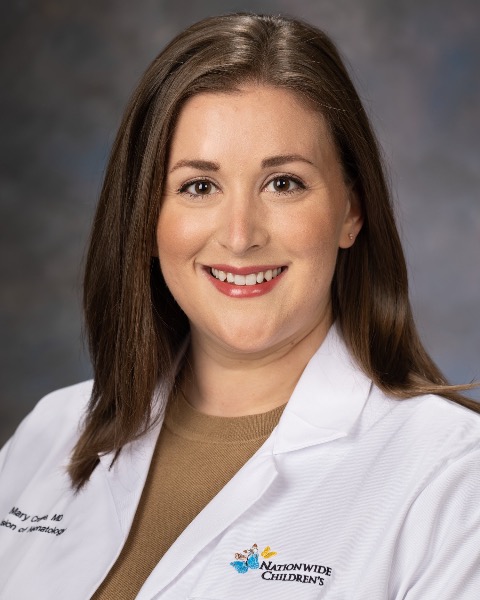Medical Education: Fellow
Medical Education 3: Fellow 1
488 - Needs Assessment of Primary Palliative Care Education for for Neonatology Trainees
Publication Number: 488.124

Mary T. Crume, MD (she/her/hers)
Neonatal-Perinatal Medicine Fellow
Nationwide Children's Hospital
Columbus, Ohio, United States
Presenting Author(s)
Background:
Primary palliative care is the basic knowledge, attitudes, and skills required by all physicians to provide palliative care. The American Board of Pediatrics recognizes these skills as an important part of Neonatal-Perinatal subspecialty training. However, there is not a standard evidence-based approach to teaching these core competencies to Neonatology trainees.
Objective:
To develop and complete a targeted needs assessment of the educational background, current practices, and attitudes of Neonatology fellows and early career Neonatologists regarding palliative care in the neonatal ICU.
Design/Methods:
An anonymous electronic survey was developed with the assistance of content experts and underwent a cognitive interviewing process. This survey was distributed to Neonatology fellows and early career Neonatologists in the United States via a national email listserv. Participants were asked about their previous training, personal comfort, and typical practices with specific elements of comprehensive palliative care. They were also asked about their interest and learning preferences for future education in primary palliative care. Response options were a combination of multiple choice, 5-point Likert scale, and free text.
Results:
There were 200 respondents, with 157 (79%) respondents completing all questions. Of these, 107 (69%) reported receiving formal palliative care education during training. Didactic lectures and role-play workshops were the most frequently employed methods of education, and the most frequently taught palliative care topics were preparing for and leading difficult conversations. However, the majority (74%) of respondents preferred case-based discussions as the primary method of education, and reported highest interest in learning how to defuse conflict (83%) and how to support families through grief (81%). All respondents expressed importance of and willingness to engage in further primary palliative care education.
Conclusion(s):
Primary palliative care skills are an essential part of practice in the NICU. Fellows and early-career Neonatologists report interest in learning these skills, many of which are not routinely covered in current formal training programs. A formal primary palliative care curriculum should be developed with consideration for the competing demands on the time of fellows, and should reflect the topics and methods that these trainees find most useful. Detailed analysis of the data generated from this study is being used to define learning objectives and educational strategies for a primary palliative care curriculum targeted at Neonatology fellows.
